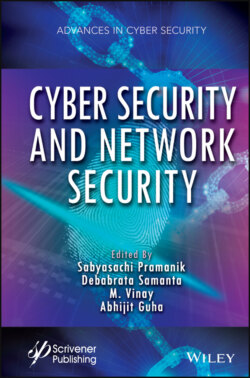Читать книгу Cyber Security and Network Security - Группа авторов - Страница 44
1.5.5 Data in Rest (Encryption)
ОглавлениеAES encryption algorithm provides security and speed. It is the most efficient symmetric algorithm because AES-256 bit encryption can produce 2256 keys. To understand this thing, 232 is about 4.3 billion and it exponentially grows after that. We can assume this to be 250 keys per second (approximately one quadrillion keys/second a very plentiful assumption). One year is equal to 31,557,600 s (approximately). That means one billion supercomputers are required to check about 275 keys per year, while the age of the universe is 234 years only which is less than .01% of the entire key possible. Thus, it is practically not possible to figure out the AES-256 bit key. In addition, apart from that we are also using SHA-512 for extra protection of data. In real world, imagining a CPU like “Intel Xeon L5630” has four core, each core an process 610 MB/s of AES-256 bit data, i.e., around 2,440 MB/s which is enough for encryption and decryption data of 10 gigabit. The SHA-512 bit in “Intel Core 2” of 1.83 GHz process under Windows Vista in 32 bit node takes 99 MiB/s and 17.7 cycles per byte. Thus, the cloud does not get overwhelmed for encryption of huge data.
